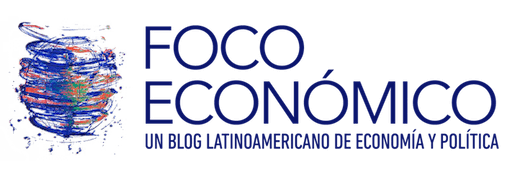Capitalist institutions have clearly brought about a great deal of progress in what are today’s developed countries. It is therefore no wonder that the prevailing belief in institutional economics is that underdevelopment is chiefly a consequence of institutional shortcomings. The prevailing idea in the literature is that some countries have succeeded in building “good” political institutions (ones that provide checks and balances for society) and “good” economic institutions (ones that drive physical capital accumulation, investment in human capital and innovation), whereas others have “bad” institutions (ones that block accumulation and innovation). Countries that have good institutions grow steadily. Those that have bad institutions grow less or grow very fast for a few years and then lapse into severe crises and periods of stagnation. In the short run, the differences may appear to be negligible, but over the span of several decades, they build up and result in very disparate levels of development.
If this explanation is to be anything more than a tautology – with “good institutions” and “bad institutions” being just another way of talking about rich and poor countries – we have to specify exactly what we understand those labels to mean. A first step is to think about institutions as being the rules of the game that govern social interactions (North 1981). This raises new questions: Who determines what the rules of the game are? How likely is it that they can be altered? In order to answer these questions, we have to take another step back and start to think about the rules of the game as just one endogenous variable in a more complex system.
An important step in that direction is to regard institutions as the outcome of the distribution of political power within a society, since those who wield political power are the ones who establish the rules of the game that govern interactions among organizations and players. Seen in this way, the fundamental thesis of institutional economics implies that certain patterns in the distribution of political power promote growth while others hinder it. This does not mean, however, that there are not certain types of political institutions, such as constitutions, for example, that are difficult to change and that exert an exogenous influence over the distribution of political power for an appreciable period of time.
The next question is, then, which distributions of political power promote growth? The answer is more evident for extreme cases and over the long term, but much less clear for intermediate cases and transitions. Let us suppose that we are in a society where total anarchy reigns. Political power is completely dispersed, and there is no organization that is capable of concentrating a substantial share of coercive power. Property rights are non-existent and there is no contract enforcement. This is not an environment that is conducive to capital accumulation or technological or economic innovation. Some concentration of political power is necessary in order for economic growth to be possible. At the other extreme, let us suppose that we are in a country that is governed by a small elite. It is highly likely that this elite will use its quasi-monopoly on political power to establish rules of the game that will increase its members’ revenues without caring how much of a distortionary effect those rules have on the rest of society. The key problem is that there is no way that the elite will make a commitment to refrain from expropriating the property of the rest of the members of society or to fulfil its part of an agreement (North and Weingast, 1989). In this kind of environment, there are very few incentives for the rest of the members of society to accumulate wealth or to innovate. An elite that monopolizes political power may produce a better world than would exist under total anarchy, but it is not likely to fuel economic development. None of this means that there may not be isolated, short-lived success stories under either anarchy or autocracy. Yet the fact remains that theoretical arguments can be coupled with historical evidence to demonstrate that extreme distributions of political power do not tend to promote economic growth over the long term.
Most of the situations of interest in the modern world are not extreme cases in terms of the distribution of political power, however. Accordingly, the important questions that we would like to answer are: What kinds of changes need to be made in the distribution of power in order for a country such as Argentina, for example, to put an end to decades of bleak economic performances? At this juncture, we simply wish to make three points. First, when we talk about institutional changes, what we really mean is changes in the distribution of political power. Second, the change in the distribution of political power must modify the rules of the game in a way that will result in a stronger economic performance. In other words, those who gain political power have to have incentives for establishing rules of the game that will be more conducive to progress than those who lose political power. Third, generally speaking, it is no simple matter to determine what the best distribution of political power is or how to make the transition towards that distribution.
Finally, we would like to pose the following question regarding the fundamental thesis of institutional economics: Is an inadequate distribution of political power really the main obstacle to development? On the one hand, we have structural issues, or, in other words, rigidities in a country’s economic structure that cause economic actors to prefer different sets of rules of the game (see, for example, Galiani, Schofield and Torrens, 2014, and Galiani and Torrens, 2014). We may also find ourselves looking at structural obstacles even when the immediate cause of a weak economic performance is the distribution of political power. There may also be a disconnection between the de jure and de facto distributions of such power. In certain types of economic structures, the de facto distribution of power may block any attempt to shift the de jure distribution of power in the right direction (Acemoglu and Robinson, 2006). On the other hand, we have ideological and cultural issues, or, in other words, aspects of the population’s perceptions and beliefs that are usually thought of as being volatile. And what about situations where, overall, the distribution of political power in a society is close to being the best possible one but where a fiercely ideologized population refuses to accept the mechanisms that will lead to progress? It is very difficult to devise a sound theory about the formation and diffusion of ideologies and beliefs, and it is perhaps partly for this reason that institutional economics has placed less emphasis on these subjects. We simply wish to draw attention to the fact that, in many instances, explanations based on the interplay of vested interests may not in themselves be enough to account for the poor performance of many countries. Beliefs and ideas may also play an important role (Mokir, 2009).
In sum, if we want to put an end to underdevelopment, we will have to alter the distribution of political power in such a way that those whose incentives are most closely aligned with pro-progress rules of the game have more political power. For intermediate cases (those that are neither anarchistic nor autocratic), it is not easy to determine what the optimum distribution of political power is. Nor is it a simple matter to change the distribution of political power in a country, although we do know that there are windows of opportunity for doing so. A country’s structure and ideology may play a pivotal role as well, however. In those kinds of cases, we need to put more effort into determining what kinds of changes in the economic structure are needed or into championing pro-progress ideas in the cultural arena.
Bibliography
Acemoglu, Daron, and James Robinson, 2006. De Facto Political Power and Institutional Persistence. American Economic Association Papers and Proceedings, 96(2), pp. 325-330.
Galiani, Sebastian, and Gustavo Torrens, 2014. Autocracy, Democracy and Trade Policy. Journal of International Economics, 93(1), pp. 173-193.
Galiani, Sebastian, Norman Schofield and Gustavo Torrens, 2014. Factor Endowments, Democracy and Trade Policy Divergence. Journal of Public Economic Theory, 16(1), pp. 119–156.
Mokyr, Joel, 2009. The Enlightened Economy. London: Penguin Books.
North, Douglass, 1981. Structure and Change in Economic History. New York: Norton.
North, Douglass, and Barry R. Weingast, 1989. Constitutions and Commitment: The Evolution of Institutional Governing Public Choice in Seventeenth-Century England. The Journal of Economic History, 49(4), pp. 803-832.



















